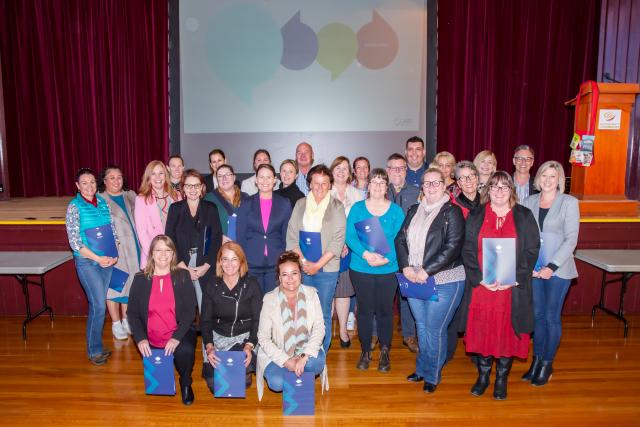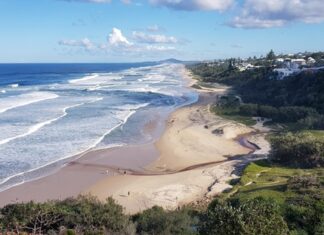Better representing the needs of local youth, addressing multi-generational unemployment, improving access to health services, and creating resources to drive better community advocacy and engagement are among the priorities of a new network of local leaders committed to action and outcomes.
They’re graduates of the Leading Australian Resilient Communities (LARC) program, in which the region is one of ten targeted for challenges endured – the impacts of floods, drought, and Covid, along with social issues such as youth unemployment and a shortage of housing and skilled workers among them.
The objective of the program – delivered by the Australian Rural Leadership Foundation (ARLF) and Regional Australia Institute (RAI) – is to bring together current and emerging leaders across the region to further develop their leadership skills and build a network that’s committed to action and outcomes.
“This is effectively done through a collaborative network of individuals committed and invested in where they live. By combining their skills, knowledge, expertise and even contacts, this is a powerful way to make a real difference,” ARLF chief executive Matt Linnegar explained.
This will be evident with the group’s diverse backgrounds including agriculture, forestry, small business, employment, education, tourism, health, government, youth, communications and community services.
RAI CEO Liz Ritchie said the program included place-based multi-day leadership sessions to identify challenges and opportunities.
“And what underpins these challenges and opportunities using RAI data for the region. This data, along with coaching, gave the group guidance on the practical, community led projects they decided to pursue.”
Kingaroy-based business owner and South Burnett Regional Councillor Kirstie Schumacher explains why the community would benefit from such resources.
“We realised that state and federal funding really does flow through our region depending on our ability to work together…and we recognize we could be actually accessing a lot more money and a lot more opportunity and really improving our Wide Bay Burnett by working together.”
Michelle Hay of Hervey Bay and head of campus (Fraser Coast) at Sunshine Coast University sees the benefit of working with others of different expertise.
“Working as a group of leaders is really important to the success of our (unemployment) program because we all come from different backgrounds, we all have access to different resources and learning environments and we bring different perspectives and we bring different strengths and weaknesses and personalities,“ Michelle said.
“It gives us a great opportunity to see the same problem from different perspectives with different ideas and different solutions.”
Tim Sayre of Avenell Heights and Jobs Bundaberg projects officer agrees.
“My highlight has actually been to make the connections and the networks with just an amazing group of people,“ Tim said.
Maroochydore-based AusIndustry regional manager Kay Strong said, “For me, it’s been meeting a lot of people around my community who are also passionate about our communities and working together and learning some new skills and techniques in effectively working together for our region.”
Red Earth Community Foundation chief executive fficer Melinda Jones from Mungungo reflected on their leadership growth.
“For me, that connection as humans and being vulnerable amongst fellow leaders and peers in our region and just how amazing, as individuals we are, to collectively come together to keep thriving and growing our region.”
Mundubbera-based community services coordinator Bobby-Leigh Redgard said, “For me it was meeting like-minded people and also building my network and building my footprint on the region.”
LARC was delivered as part of the Australian Government’s Building Resilient Regional Leaders Initiative (pilot) grant.









